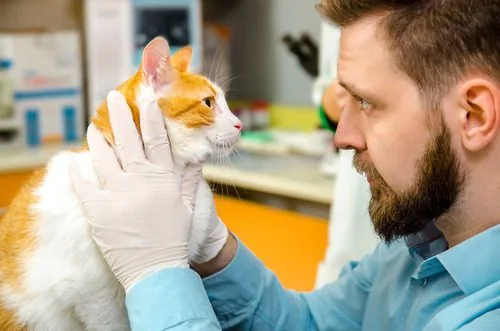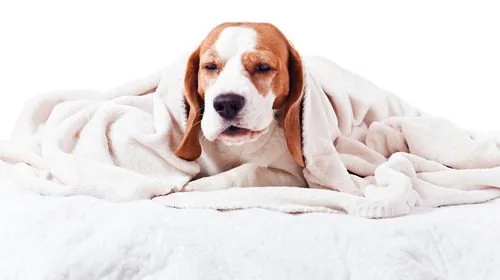Dog Dehydration: Symptoms, Treatment and How to Protect Your Pet
Dogs rely on water for nearly every aspect of their health, but staying hydrated isn’t always as simple as filling the bowl. Whether they’re out in the sun for too long or facing an illness that zaps their energy, dehydration can sneak up on even the healthiest dogs. Learning to spot the early warning signs and understanding how to act can make a huge difference in your dog’s well-being. In this blog, we’ll walk you through the common symptoms of dog dehydration, what treatments to expect, and how to prevent it from happening in the first place.

What Causes Dog Dehydration?
Dehydration in dogs happens when they lose more fluids than they take in. Water is necessary for nearly every bodily function, from regulating temperature to digesting food. When your dog doesn’t drink enough, their body can’t maintain these essential processes. Common causes of dehydration include:
- Heat exposure: Hot weather can cause excessive panting, leading to fluid loss.
- Vomiting or diarrhea: Illness can lead to rapid dehydration, especially if your dog is unable to keep fluids down.
- Lack of water access: If your dog’s water bowl is empty for too long, they can easily become dehydrated.
- Increased activity: After exercise, dogs lose fluids through panting and may need more water to replenish.
- Underlying health conditions: Issues such as kidney disease or diabetes can also lead to dehydration if not properly managed.
Is Your Dog Dehydrated?
Dogs may not show obvious signs of dehydration right away, but as it progresses, symptoms become more apparent. Some common symptoms of dog dehydration include:
- Dry nose and gums
- Dull, sunken eyes
- Unusual lethargy or weakness
- Loss of skin elasticity
- Heavy panting and rapid breathing
- Loss of appetite
As dehydration worsens, symptoms become more severe. If your dog collapses, has an increased heart rate, or severe vomiting or diarrhea, seek veterinary care immediately.
How Is Dog Dehydration Treated?
Once you recognize the signs of dehydration, be sure to get your dog the help they need promptly. Depending on the severity of the dehydration, your veterinarian will recommend different treatments.
Encourage Drinking
Mild dehydration can often be treated by encouraging your dog to drink more water and offering electrolyte solutions recommended by your vet. This approach can help replenish lost fluids and balance their electrolytes.
Administer Fluids
Moderate to severe dehydration usually requires veterinary intervention. In these cases, your veterinarian may administer fluids intravenously (IV) or subcutaneously (under the skin). This helps to quickly rehydrate your dog and restore the balance of electrolytes.
Diagnosing & Treating Any Underlying Condition
Treating the underlying cause of dehydration is also critical. If an illness or medical condition is causing fluid loss, your veterinarian will address that problem to prevent future dehydration episodes.
Monitoring Your Dog After Treatment
After treatment, your veterinarian may suggest monitoring your dog closely for a few days. This involves keeping an eye on their water intake and checking for any recurring symptoms. In cases where an underlying condition is present, your vet may recommend regular check-ups to manage the issue and prevent dehydration from reoccurring.
Tips for Preventing Dog Dehydration
Preventing dehydration is all about making sure your dog stays hydrated and healthy in everyday situations. Simple adjustments to your routine can help protect your dog from dehydration, especially during the hotter months or after strenuous exercise.
- Provide access to clean, fresh water at all times. Make sure your dog’s water bowl is always filled, and consider placing multiple bowls in different areas of the house.
- Keep your dog indoors during extreme heat. If your dog needs to be outside, provide plenty of shade and access to water.
- Carry water with you on walks. When you’re out for a walk or hike, bring along a portable water bowl to keep your dog hydrated.
- Adjust exercise based on weather. If it’s particularly hot or humid, shorten your dog’s walks or choose cooler times of the day to go outside.
- Pay attention to your dog’s eating habits. A sudden loss of appetite could indicate dehydration or an underlying health issue.
If you suspect your dog is dehydrated, try encouraging your dog to drink more water. However, if you notice more advanced symptoms, it’s time to seek professional veterinary care. If your dog is showing signs of dehydration, or if they are vomiting, have diarrhea, or seem excessively lethargic, call Veterinary Village at (484) 820-1700 or schedule an appointment online to ensure your dog gets the care they need.
Recent Posts
About Veterinary Village
Veterinary Village offers excellent service to clients in a comfortable, friendly atmosphere. To learn more about us and how we can better serve you and your pet here in Plymouth Meeting, PA, click the button below.
Share This Post
Recent Posts
About Veterinary Village
Veterinary Village is a network of three animal hospitals based in Atlanta, GA and the surrounding area. We offer honest, excellent service to our clients in a comfortable, friendly atmosphere. To learn more about our locations and how we can better serve you and your pet, click the button below.



